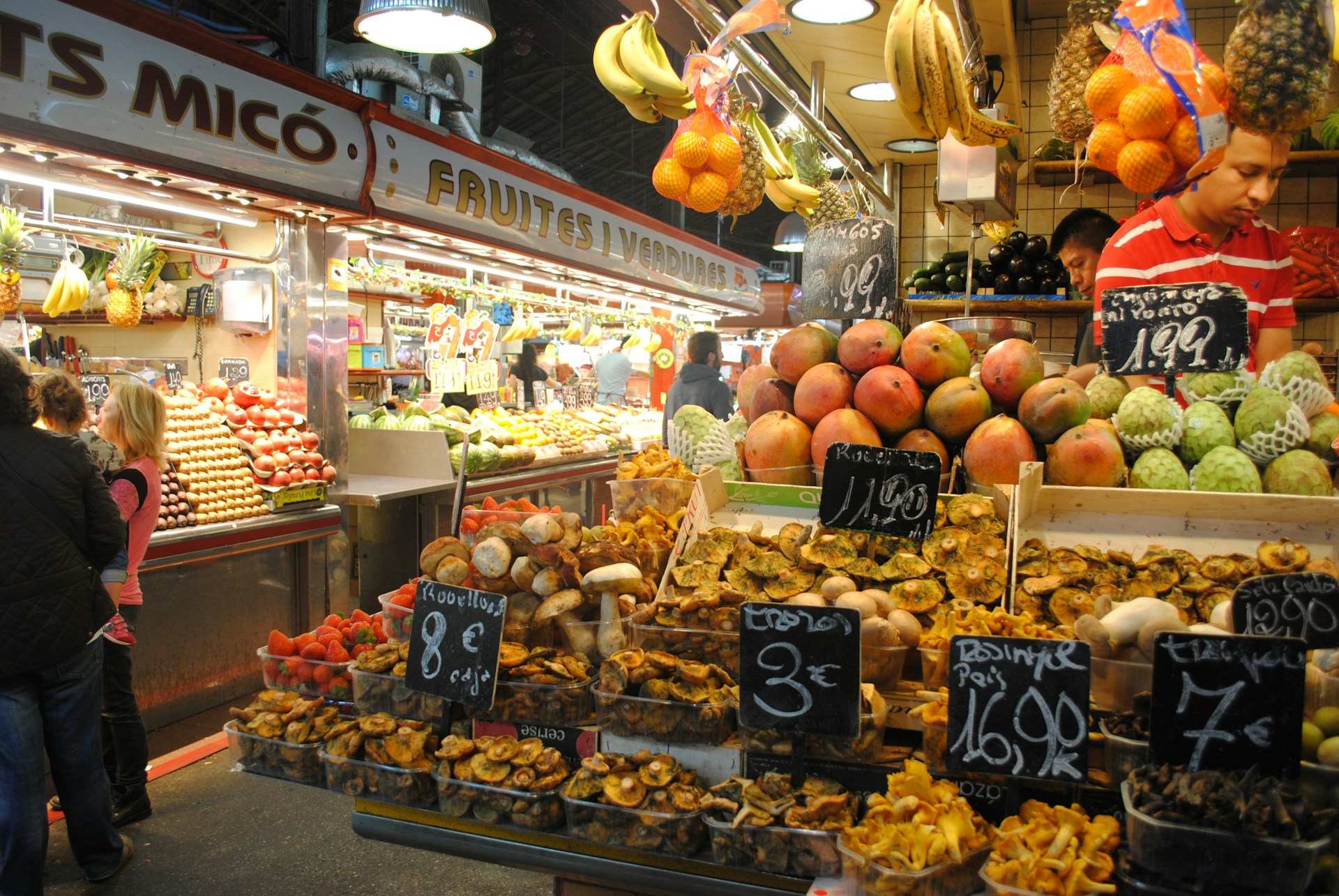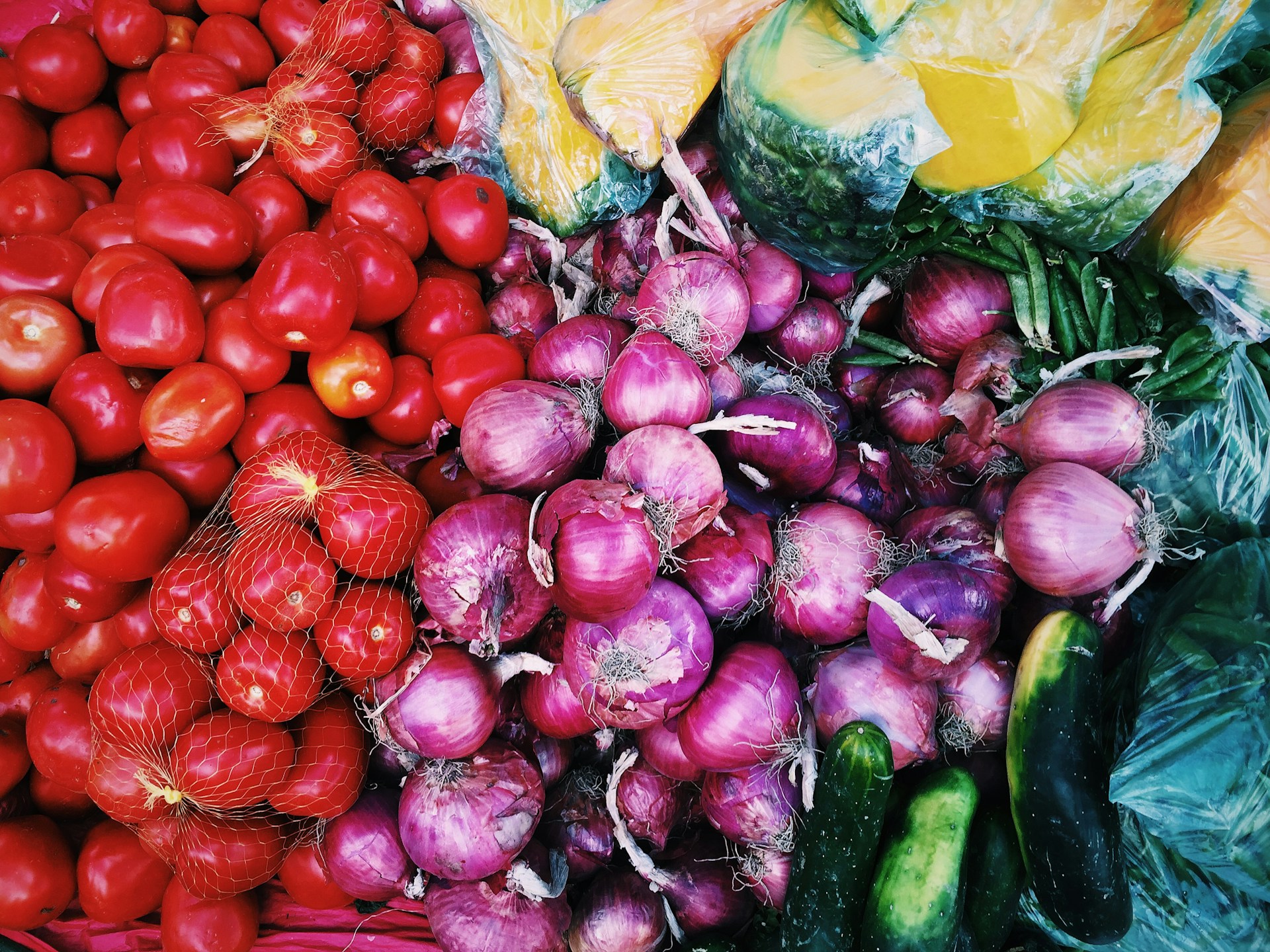Successful produce retailers understand the powerful impact of a well-developed brand.
It has the potential to distinguish you from the competition, foster customer loyalty, and ultimately, drive sales.
However, crafting a compelling brand strategy is no simple feat.
It requires a clear vision, deep understanding of your target audience, and consistent implementation across all facets of your business.
In this blog, we intend to demystify this process by sharing effective branding strategies exclusively tailored for produce retailers.
Let’s delve into the essentials, the implementation, and the maintaining of your brand in the competitive world of produce retailing.
Contents
Branding Strategies For Produce Retailers
1. Diversify Produce Selection Through Local Farmers
In the highly competitive world of produce retailing, branding strategies can play a crucial role in distinguishing a retailer’s offerings from those of its competitors.
This is where the idea of diversifying produce selection through local farmers comes to the fore.
The drive towards locally sourced fruits, vegetables and other kinds of produce is a growing trend among consumers keen on supporting their local economies and reducing their carbon footprints.
Produce retailers have the opportunity to tap into this trend by strengthening their relationships with local farmers, and thereby providing their customers with an array of fresh and unique produce that can’t be found elsewhere.
Not only does locally sourced produce have a fresher taste and higher nutritional value, it also holds a certain charm for consumers who enjoy knowing that they are supporting your local community farmers.
Implementing this strategy goes beyond just offering a diverse array of produce, it is about celebrating and promoting the story behind each fruit and vegetable.
By explaining on-point labels or signage where the produce comes from and who grew it, retailers can help their customers connect with the food they eat on a deeper level.
This, in turn, can foster customer loyalty and give them a sense of belonging and investment in the store.
Involvement with local farmers also opens the door for collaboration on special events, like in-store visits where farmers can meet with customers, share the story behind their products and offer cooking tips or recipes.
These kinds of events not only serve as a unique marketing angle, but they create a community atmosphere that is irresistible for many customers.
Additionally, sourcing produce locally also offers environmental benefits.
Shorter distances between the farm and the retail store mean fewer carbon emissions, and it can be a selling point for eco-conscious consumers.
Finally, produce retailers should not underestimate the power of ongoing conversations and feedback from local farmers.
These insights can help retailers stay updated on potential issues, such as crop shortages, and also give them a heads-up about which produce might be especially plentiful and fresh in a given season.
With all these factors in play, it is clear that diversifying produce selection through local farmers is a powerful branding strategy for produce retailers.
In an increasingly conscious consumer marketplace, this approach offers a unique blend of freshness, community engagement, environmental responsibility, and delivery of a memorable customer experience that can differentiate a retailer from its competitors.
It is a powerful way to forge a compelling brand identity that can resonate strongly with customers and earn their loyalty over time.
2. Implement Engaging In-Store Product Demonstrations
Producing retailers looking to strengthen their brand should consider implementing engaging, in-store product demonstrations.
This strategy has been proven to increase sales, boost customer engagement, and contribute to a retailer’s overall in-store experience.
Demonstrations give customers an opportunity to touch, smell, and experience products before making a purchase.
This sensory experience can turn browsing customers into buyers and drive word-of-mouth recommendation.
Demonstrations also add value to the shopping experience by educating customers on how to use new or unfamiliar products.
Fostering a sense of curiosity and encouraging product experimentation are key benefits of in-store product demonstrations.
These events often result in immediate sales, with customers eager to take home the merchandise they’ve just seen demonstrated or sampled.
The audience also leaves with a better understanding of the product’s usage and function, which further boosts the likelihood of future purchases and referrals.
Product demonstrations are also a great opportunity to show off the retailer’s knowledge and expertise in their field.
Your staff get a chance to engage with customers, demonstrating their deep understanding of the products and instilling confidence in the brand.
Hosting demonstrations is a fantastic way to differentiate yourself from other retailers, offering a unique and engaging shopping experience.
Demonstrations also provide retailers with valuable customer feedback to refine and improve their product offerings.
However, effective demonstrations require careful preparation and realistic planning.
Ensure the products being demonstrated are relevant to your audience.
Ensure you’re showcasing products that are in season and relevant to your customer’s current needs or interests for an effective demonstration.
Finally, while in-store product demonstrations require an initial investment, the increased sales, customer engagement, and brand loyalty they foster make them a worthwhile endeavor for produce retailers.
3. Promote Eco-Friendly Practices and Organic Products
Developing a branding strategy that involves the promotion of eco-friendly practices and organic products sends out a powerful message about your brand’s values and commitment to the environment.
As a produce retailer, displaying your investment in sustainable practices can significantly enhance your reputation among your clientele and even help to attract new customers.
In this eco-aware society, many shoppers are willing to pay a higher price for products that have been produced in a manner that is respectful to the environment.
Engaging with organic produce farmers and adopting sustainable packaging can advertise your dedication to eco-friendly practices .
Organic produce is not only appealing due to being free from harmful pesticides and genetically modified organisms, but they also tend to be more nutritious and flavorful than their conventional counterparts.
For these reasons, promoting organic products can lead to increased sales and customer loyalty.
Communicating your eco-friendly initiatives should be a central part of your branding strategy.
Effective communication can be achieved through various channels such as social media, in-store displays, and marketing materials where your commitment to the environment can be clearly stated.
Perhaps, you can share stories or videos showing how the organic products are grown and how this process contributes to a cleaner and safer environment.
This strategy not only informs customers about your products but also educates them on the positive impact their purchases can cause.
Moreover, aligning your brand with popular environmental causes or nonprofit organizations can amplify your branding message and give your customers an additional reason to choose your products over those of your competitors.
Another effective way to promote eco-friendly practices is to include sustainability performance in your corporate business reviews.
Reporting on these activities can show your stakeholders that your commitment to the environment is not just a marketing strategy, but a core part of your business’s values and operations.
Emphasizing your commitment to organic and eco-friendly practices will lay a solid foundation for your brand, draw in a market of environmentally conscious customers and enhance your overall reputation.
Incorporating these practices into your branding strategy will give your business a distinctive edge in the highly competitive retail world.
The Bottom Line
Promoting a wider variety of produce sources, particularly through local farmers, can create an increased diversity in product offerings.
This approach not only supports the local economy but also allows for fresher produce to be sold.
Additionally, implementing engaging in-store product demonstrations can pique consumer interest and potentially drive sales.
Lastly, advocating for eco-friendly practices and organic products, not only aligns with increasing consumer demand for sustainable sourcing, but also promotes a healthy lifestyle and protects the environment.
These measures collectively contribute to a vibrant and successful grocery business that’s well-respected within its serving community.




